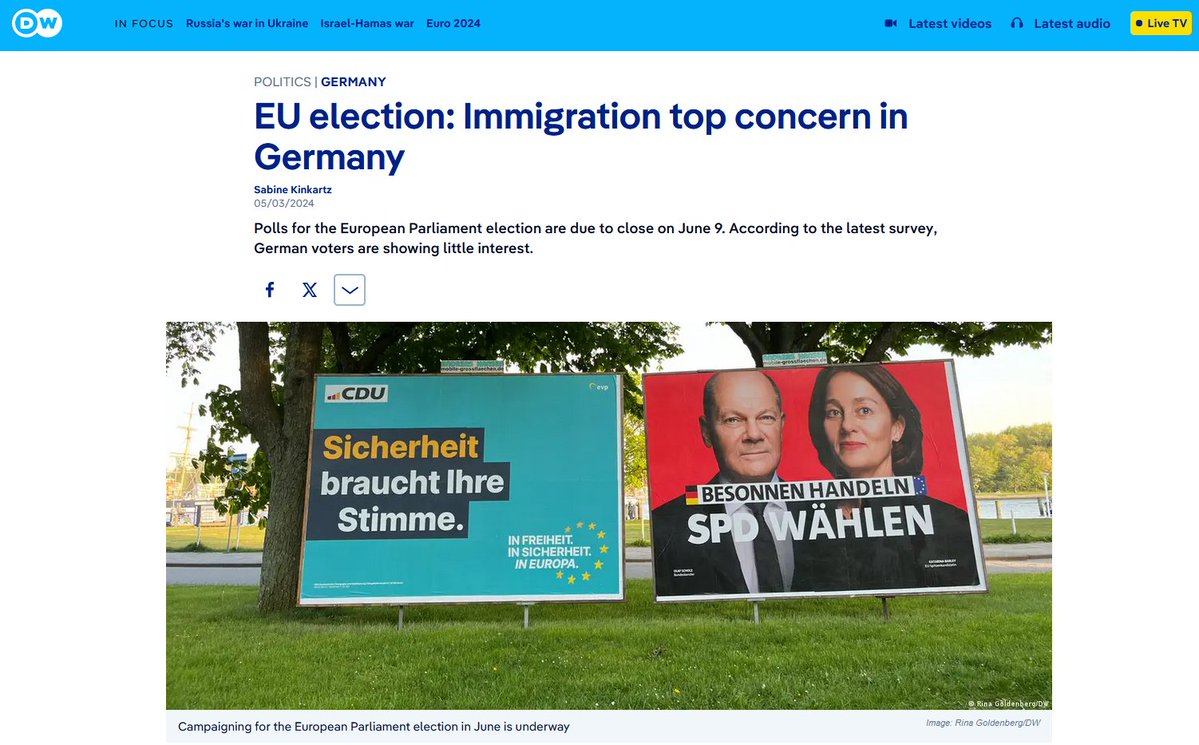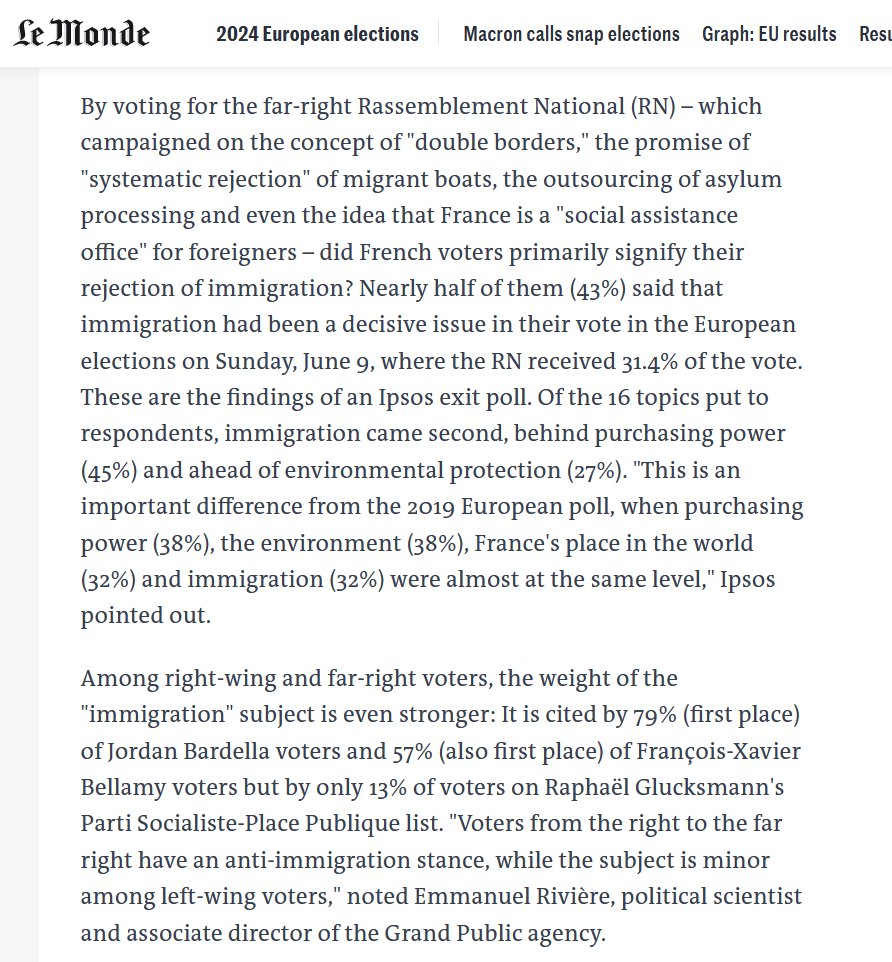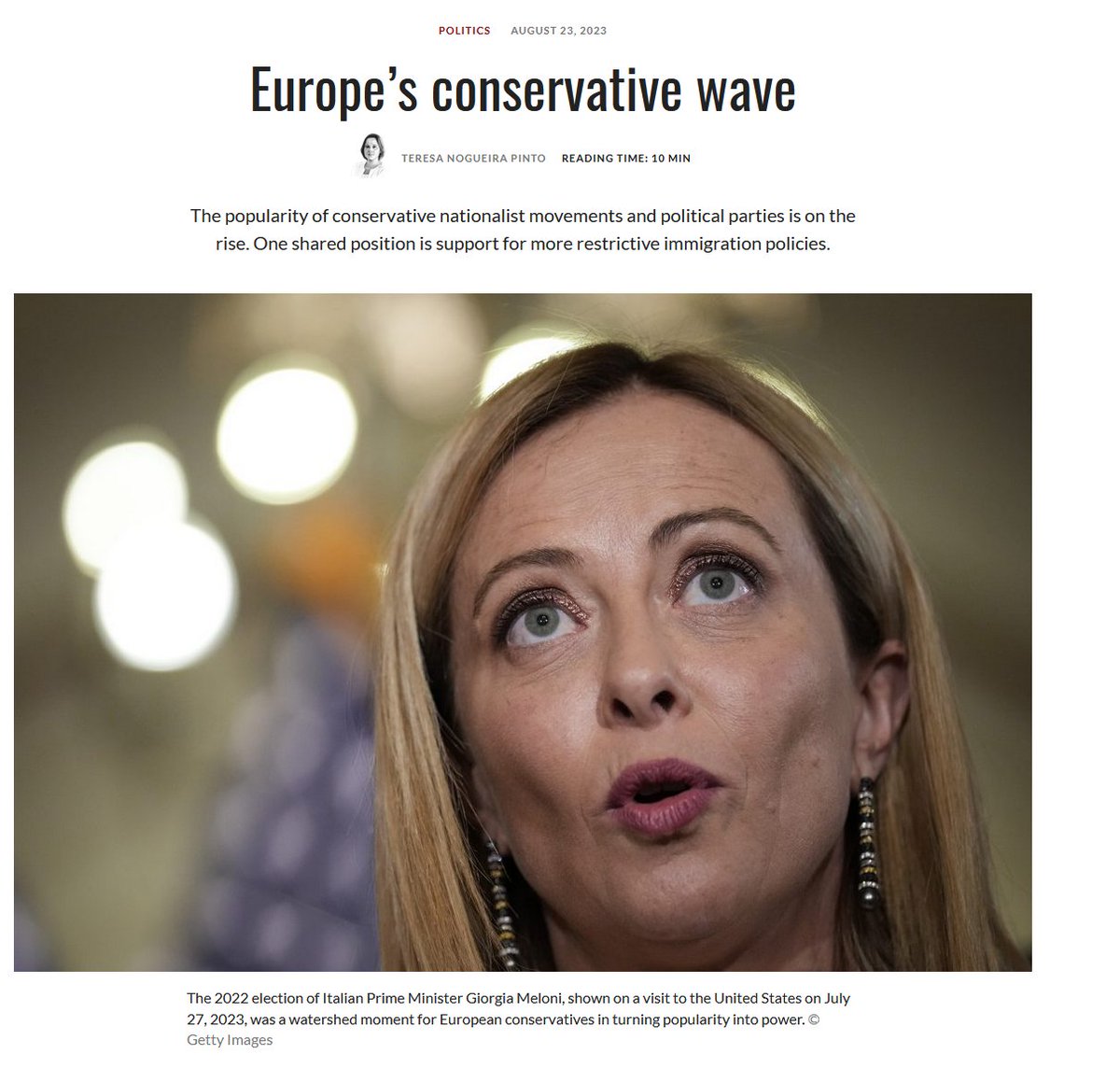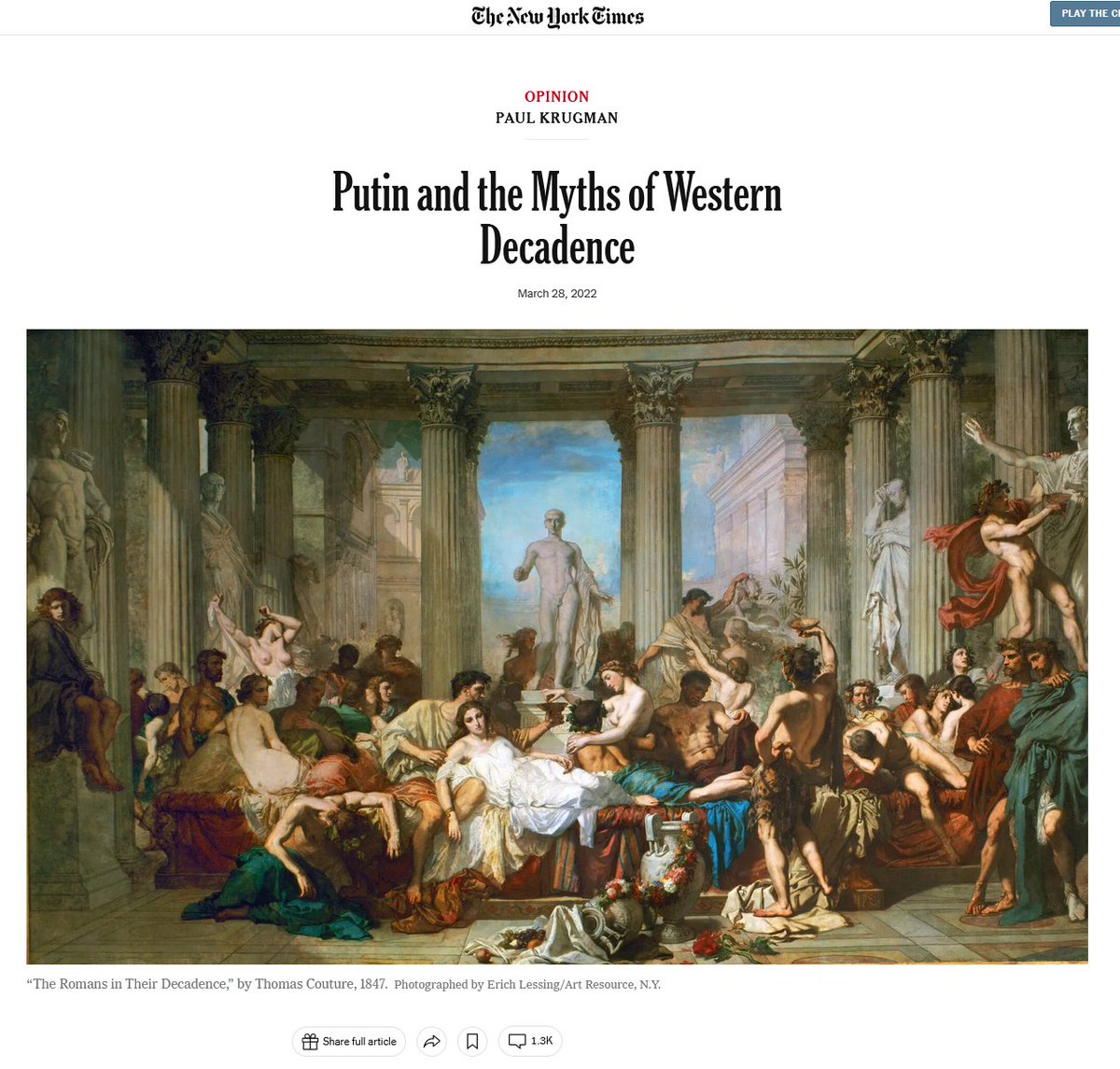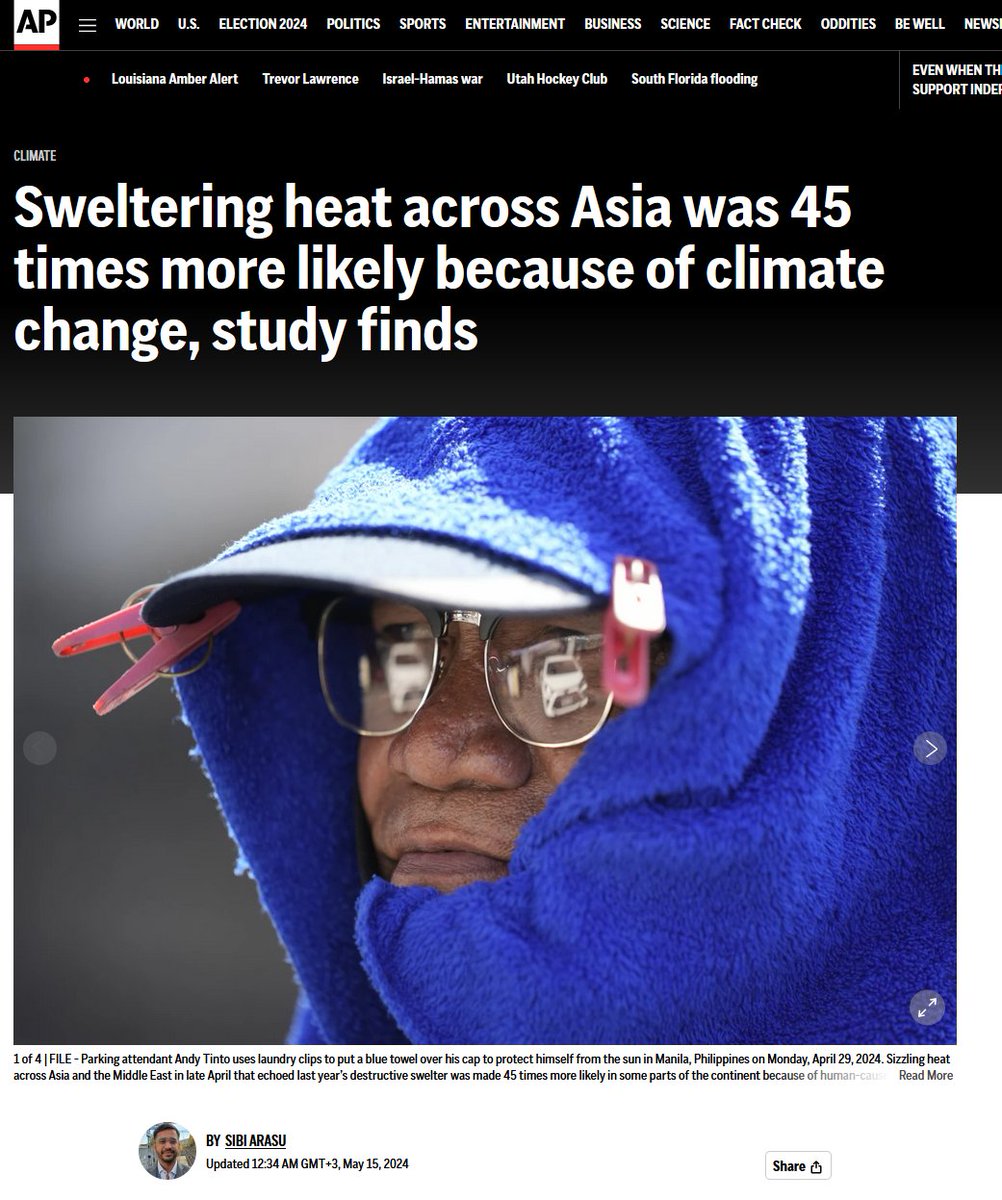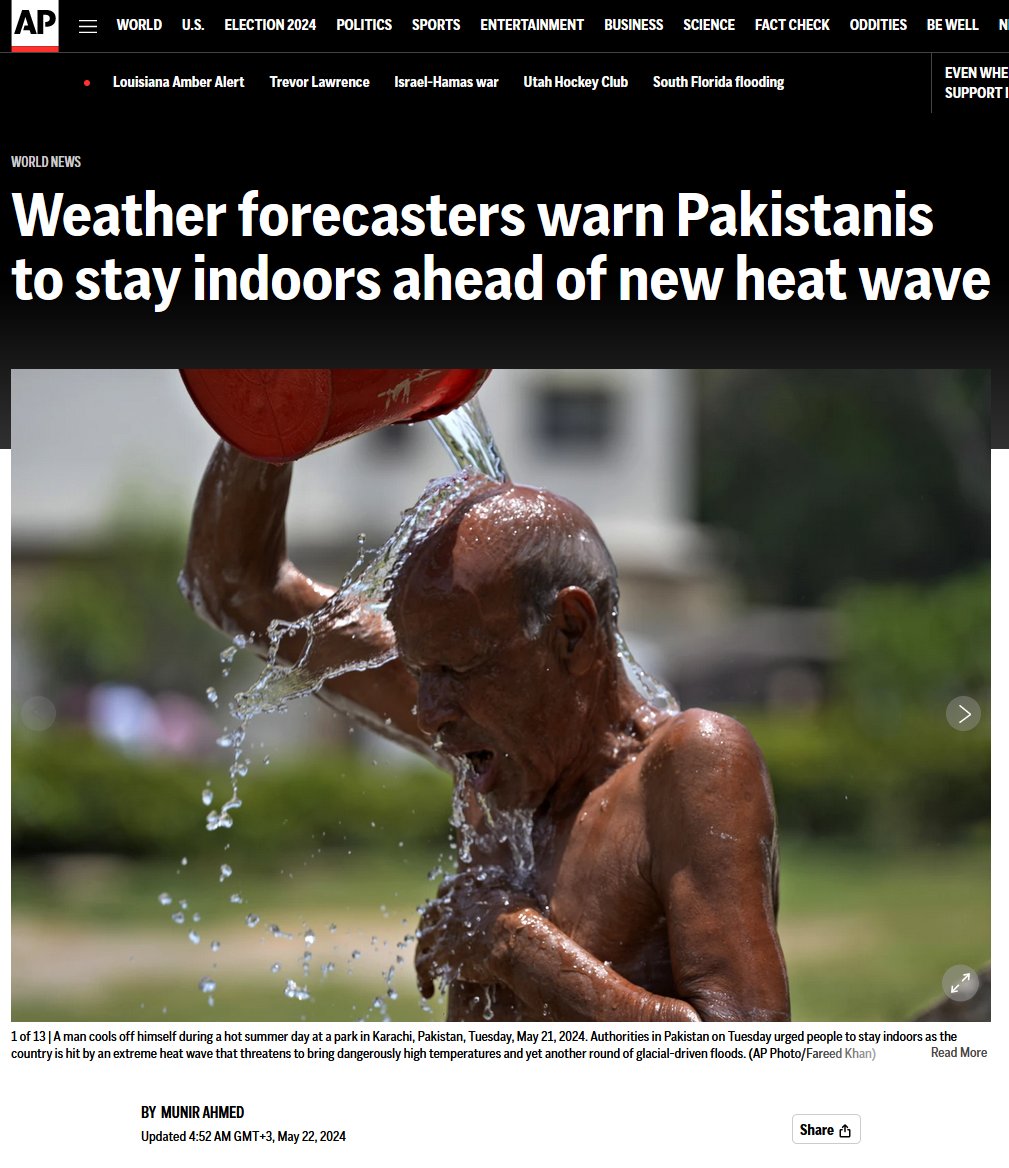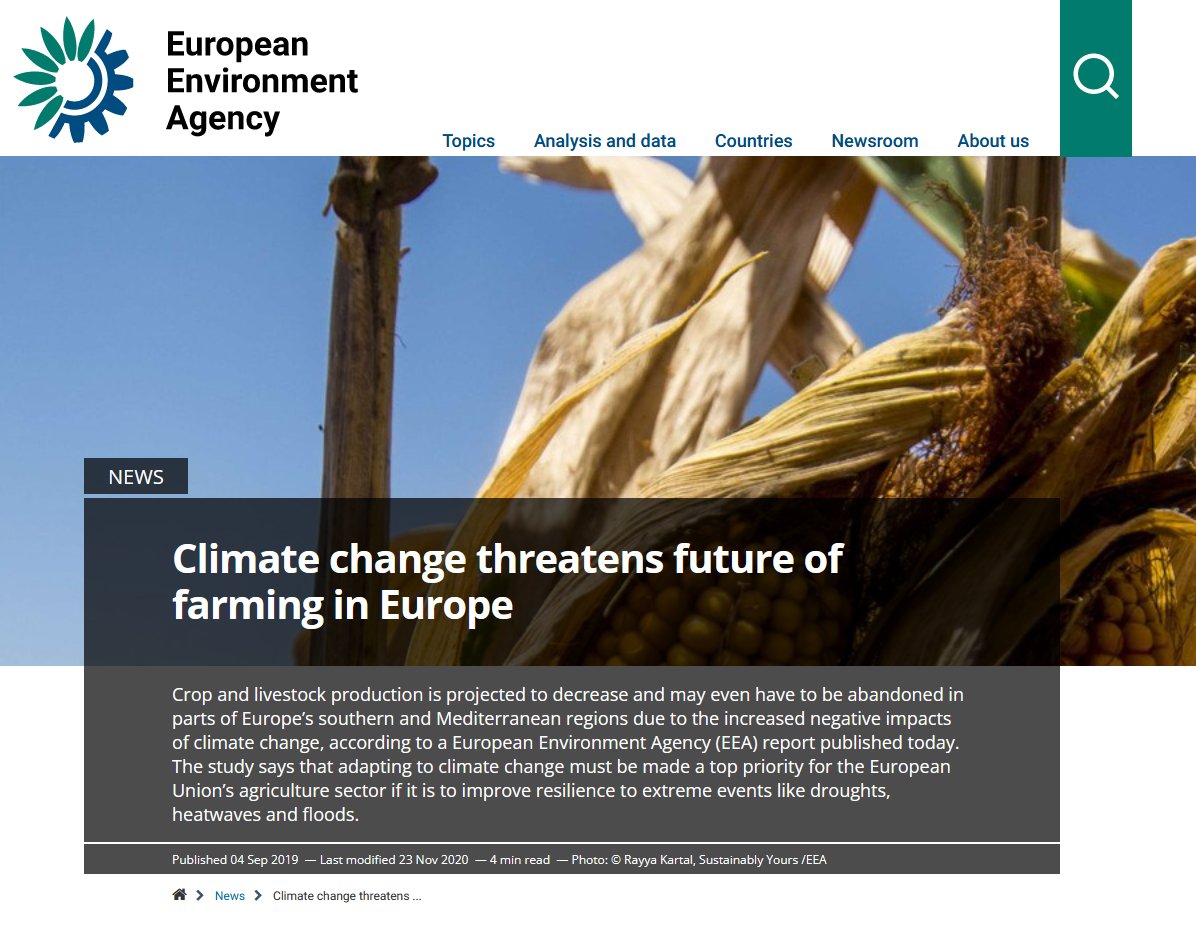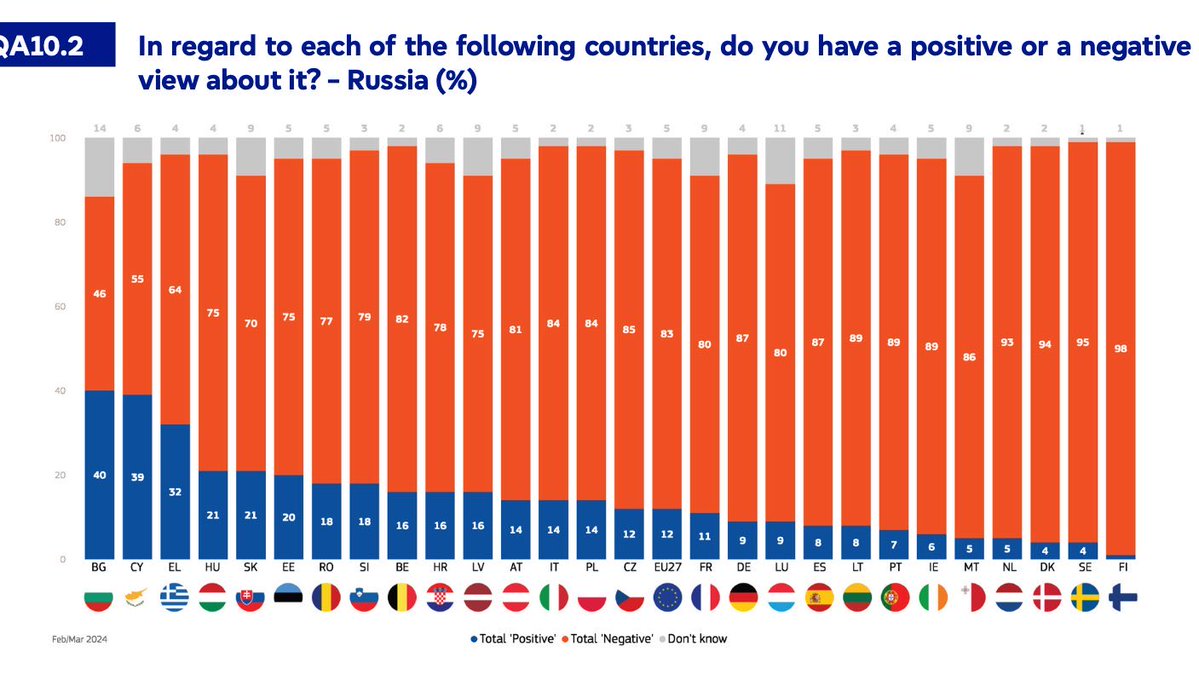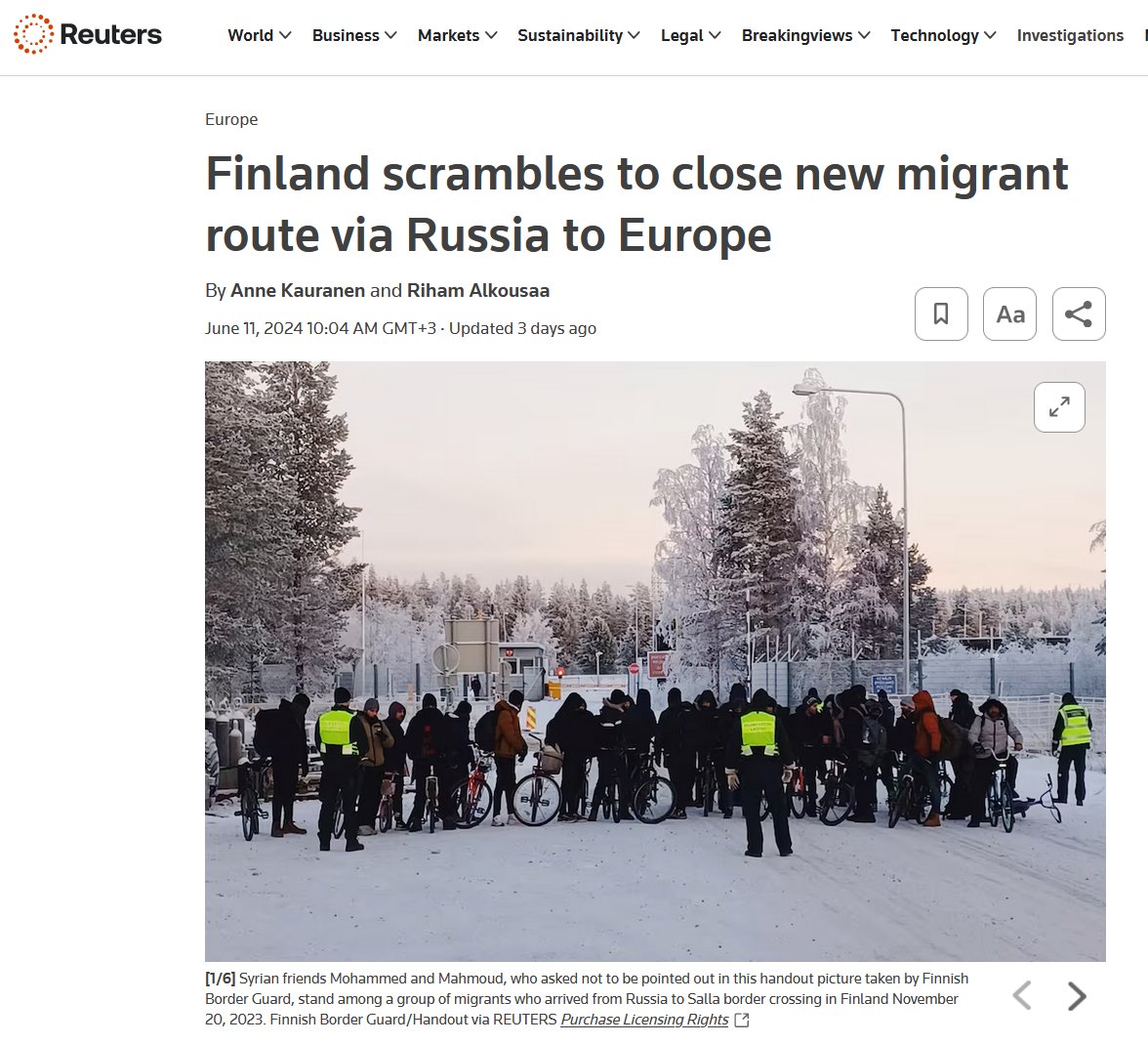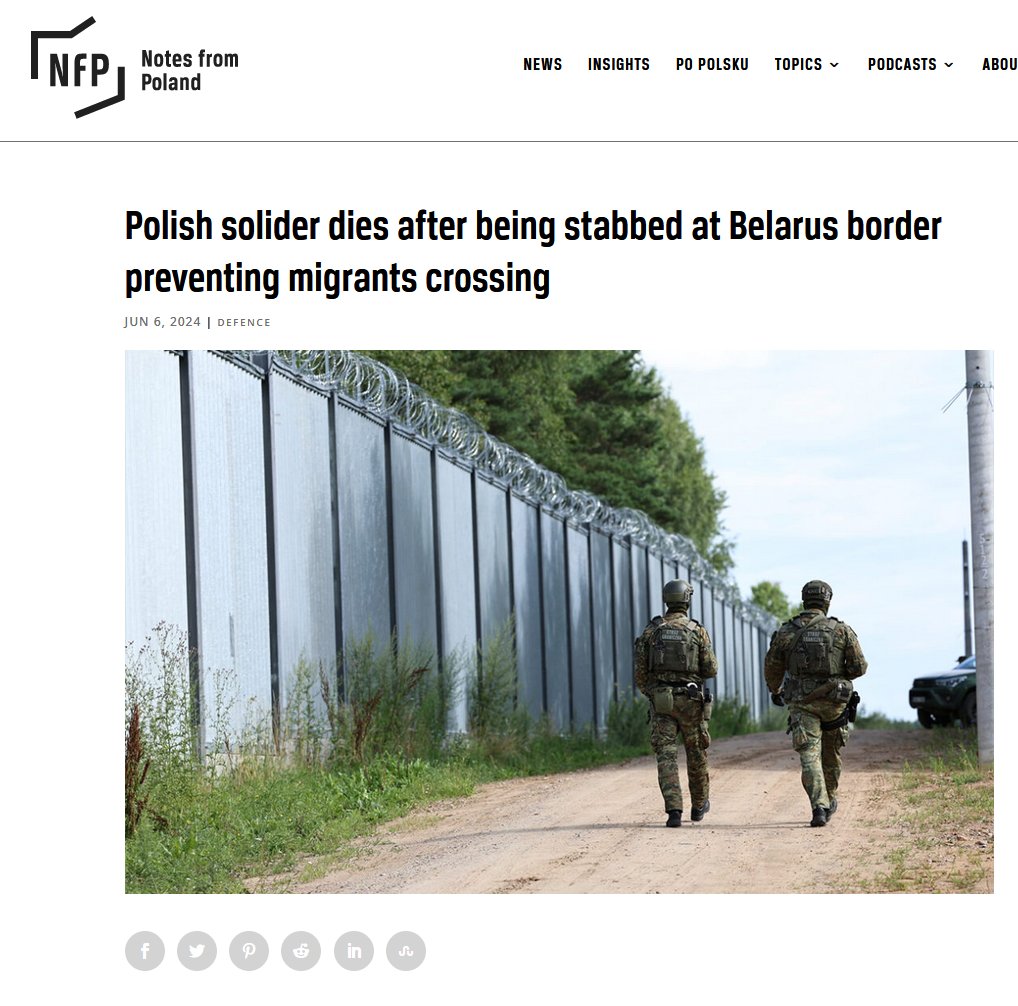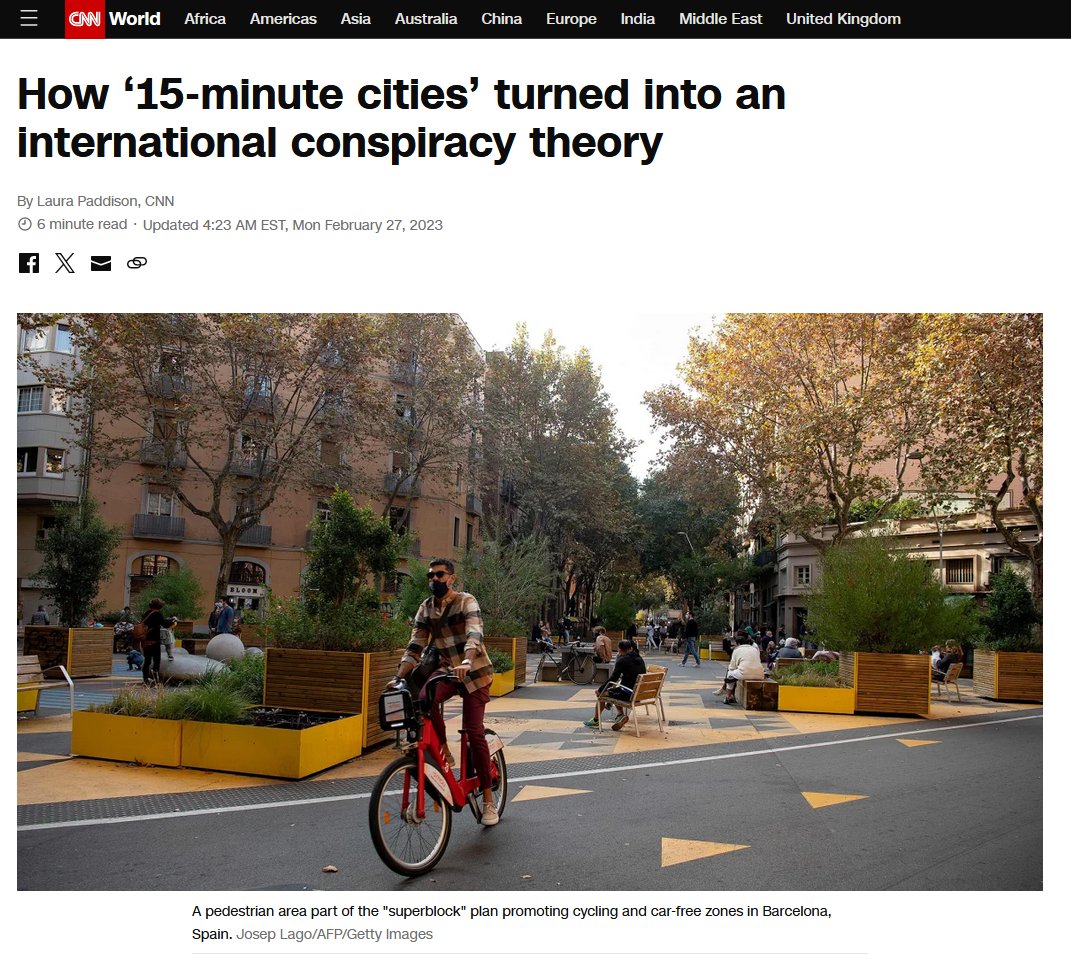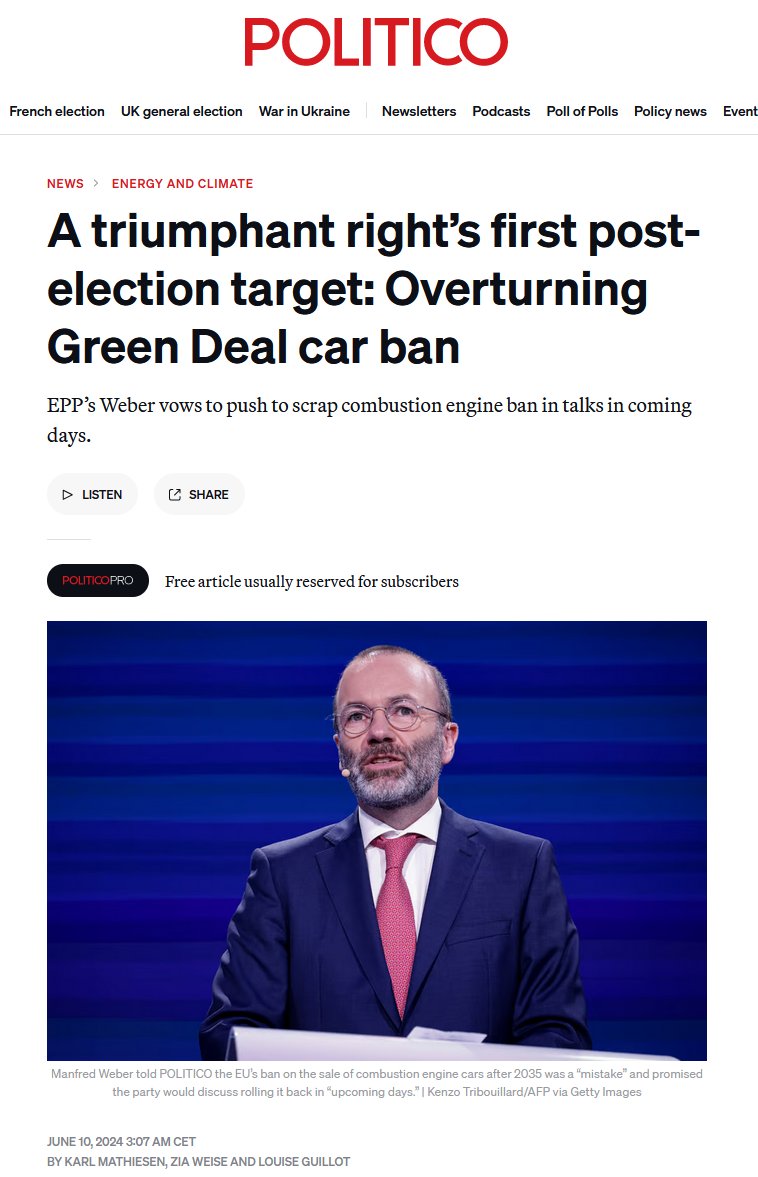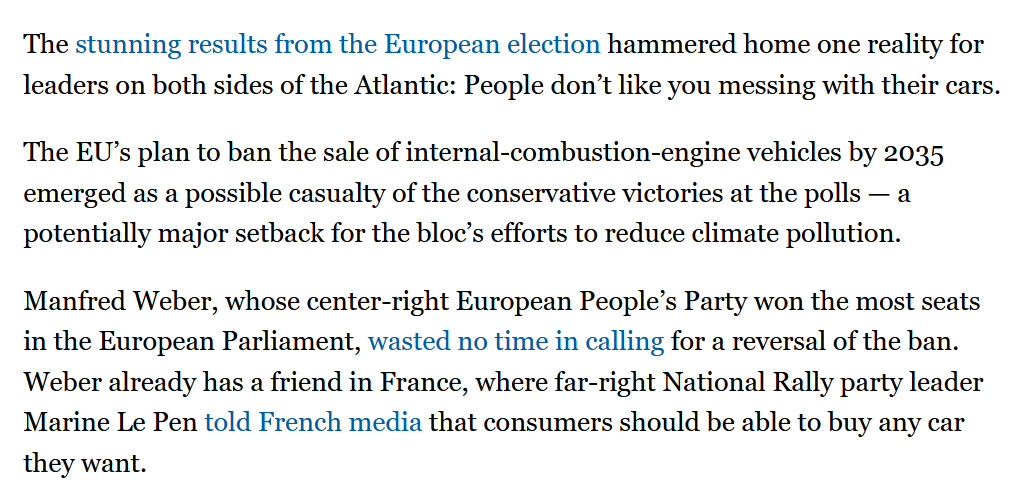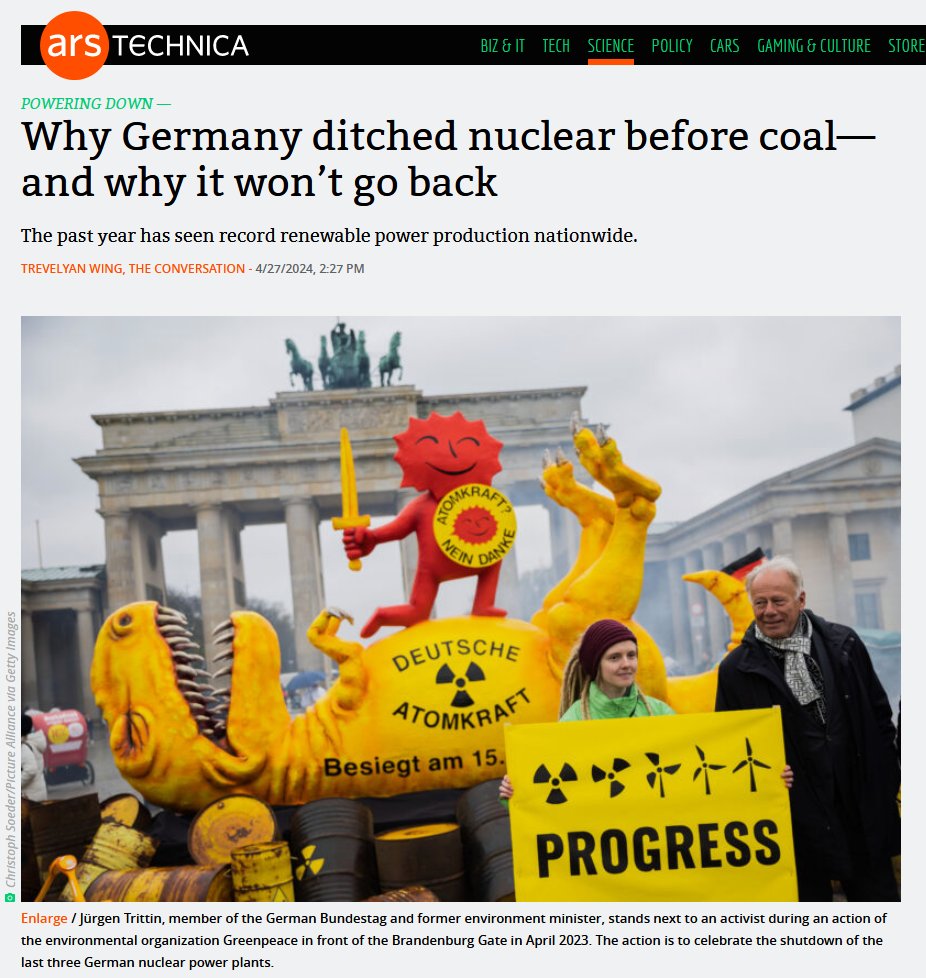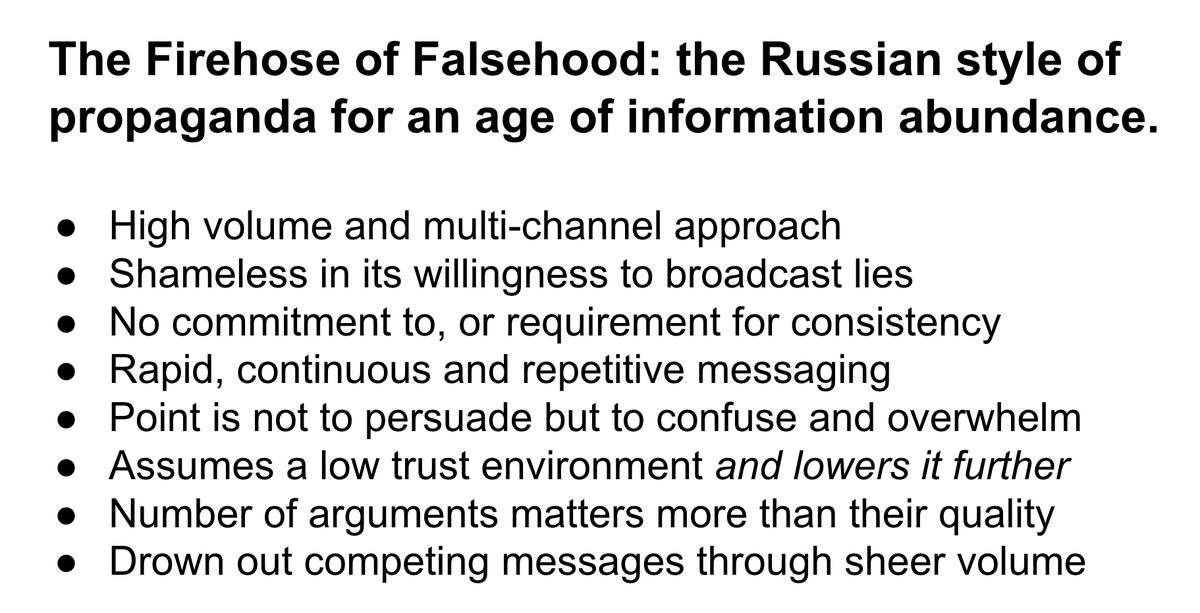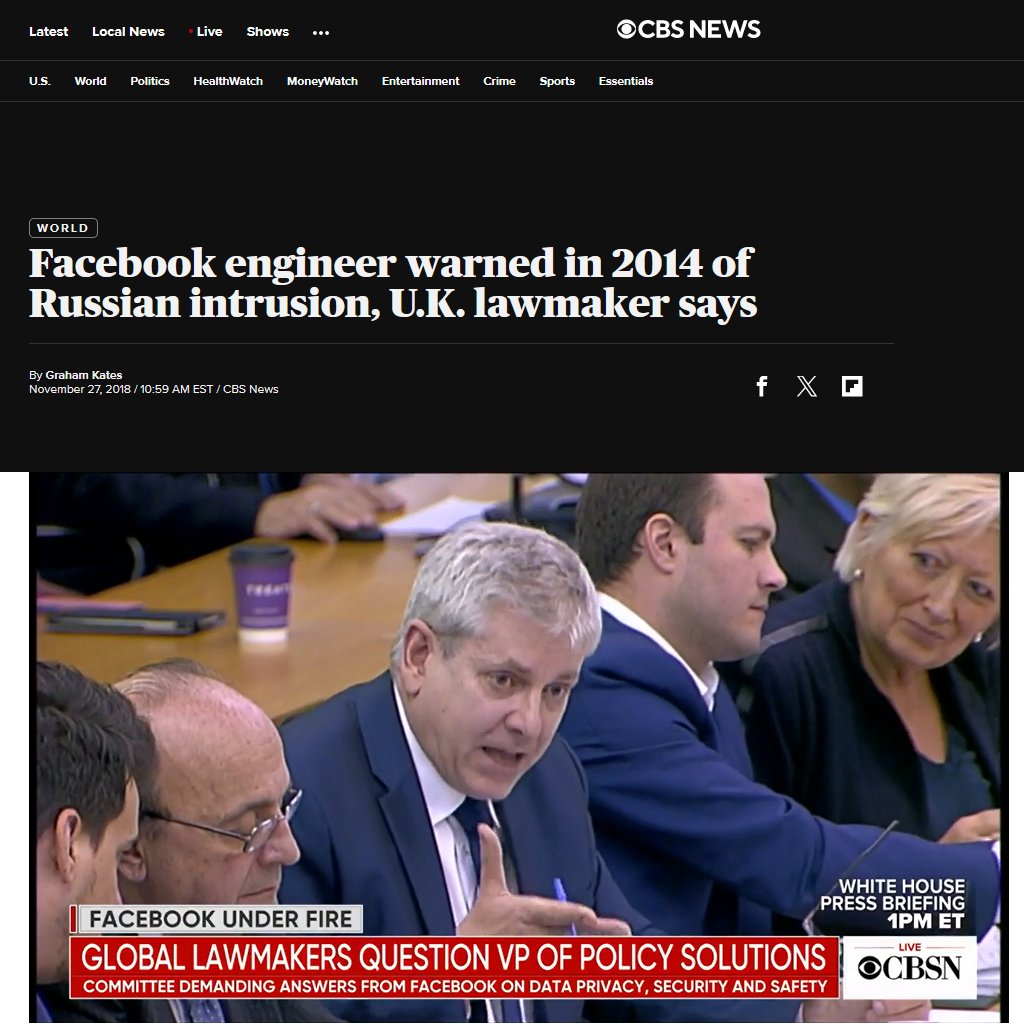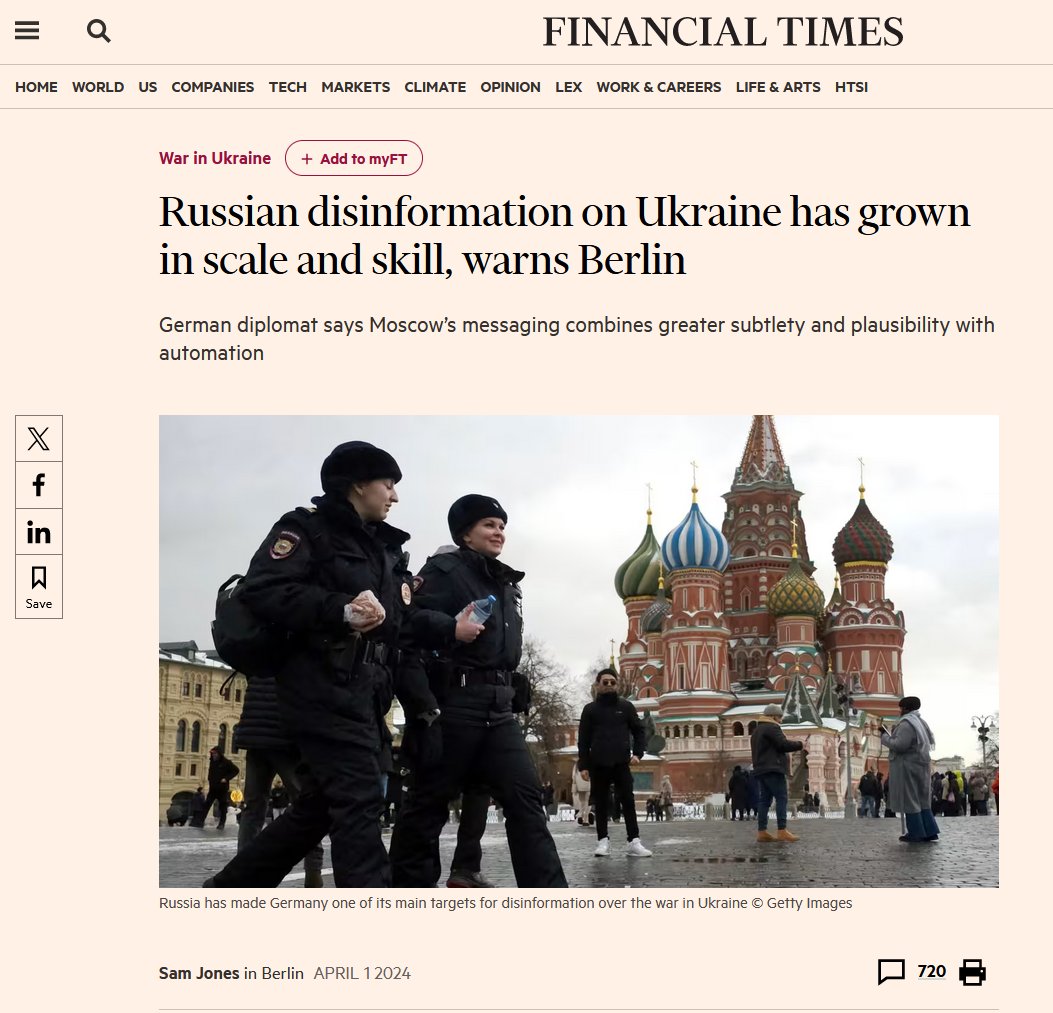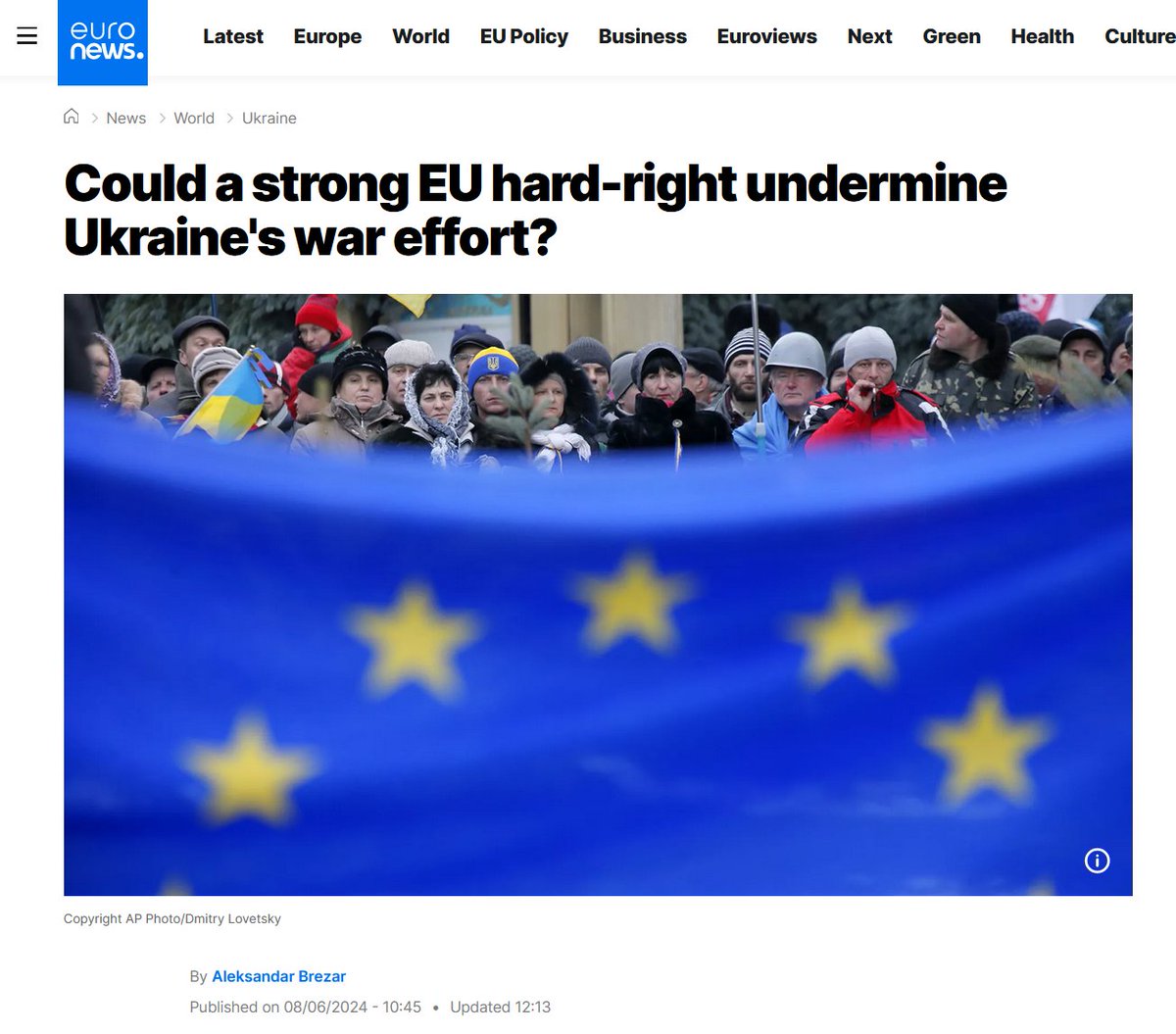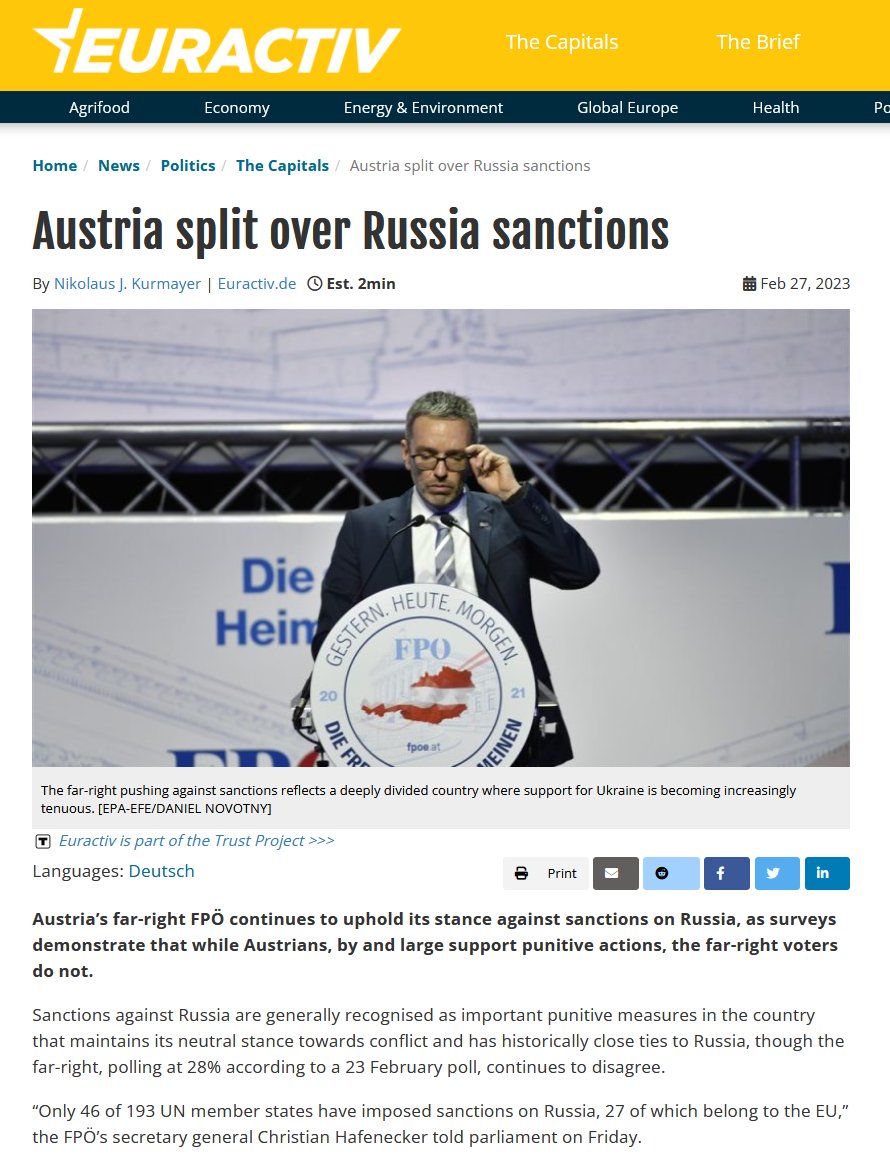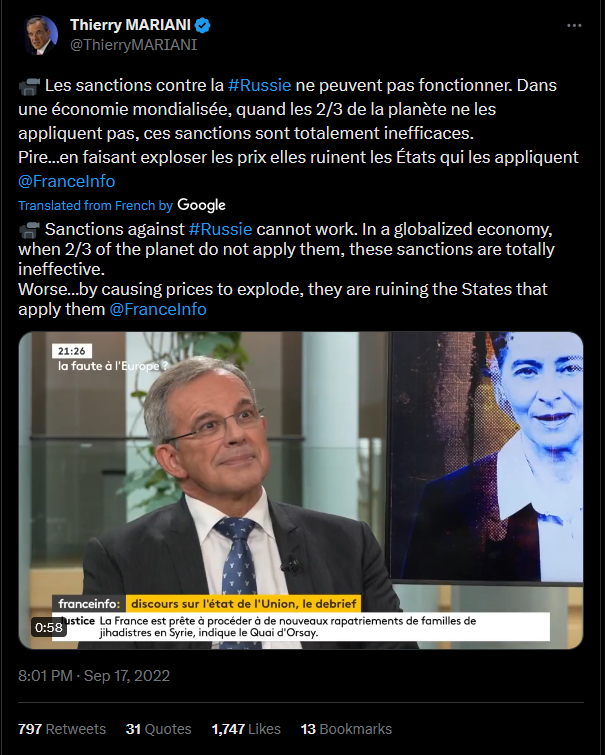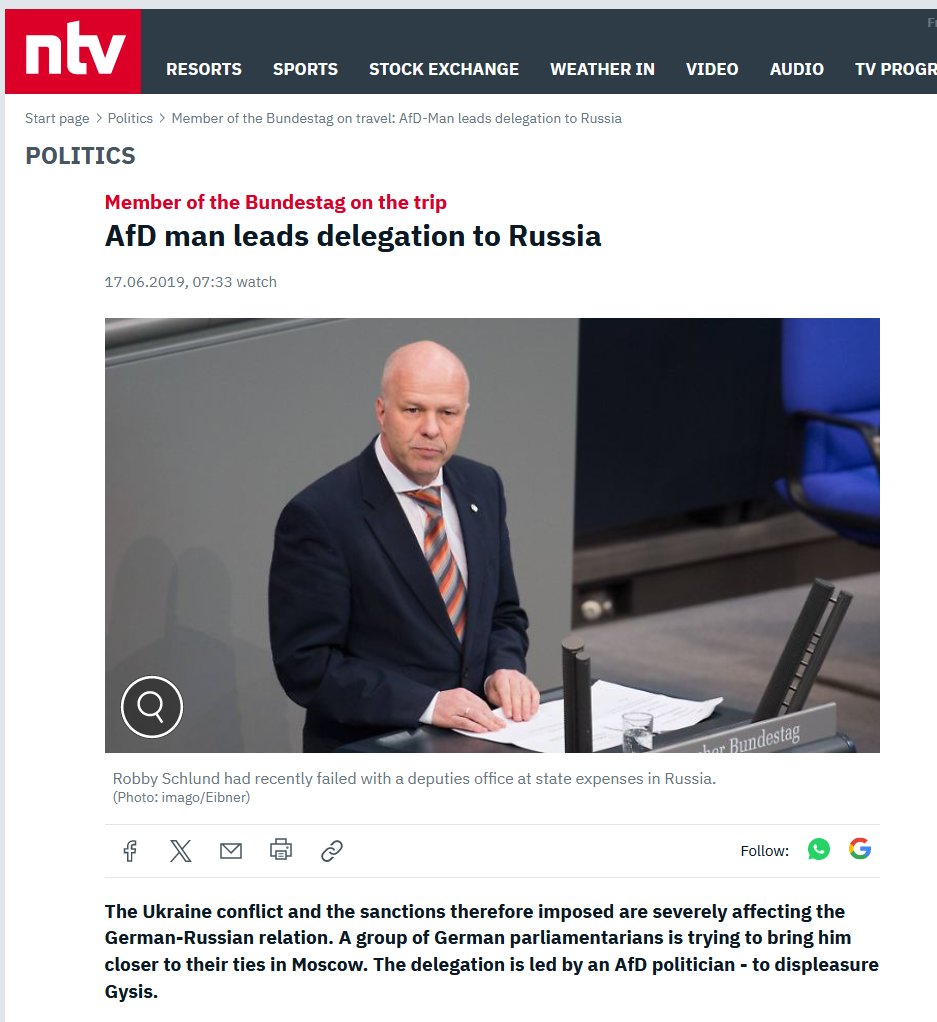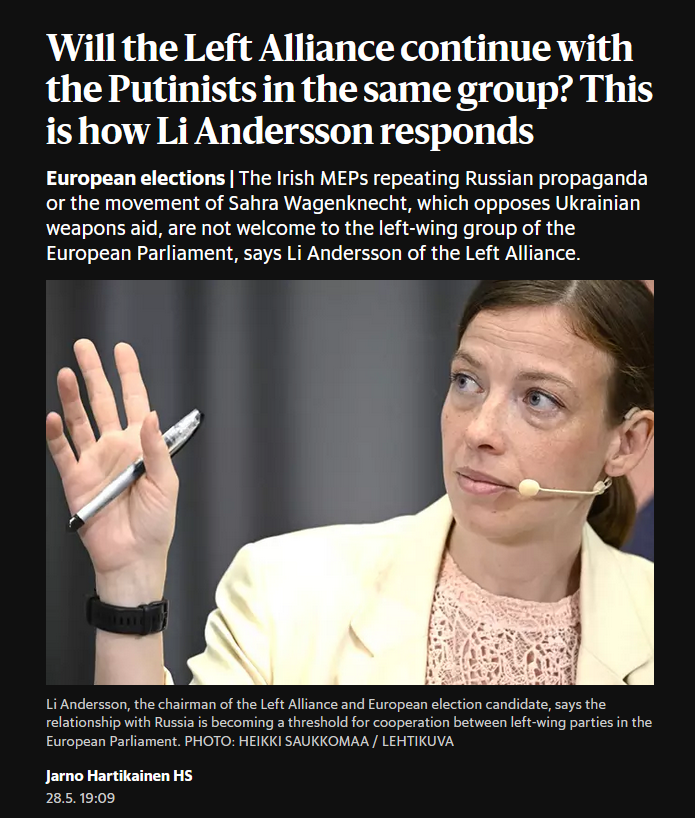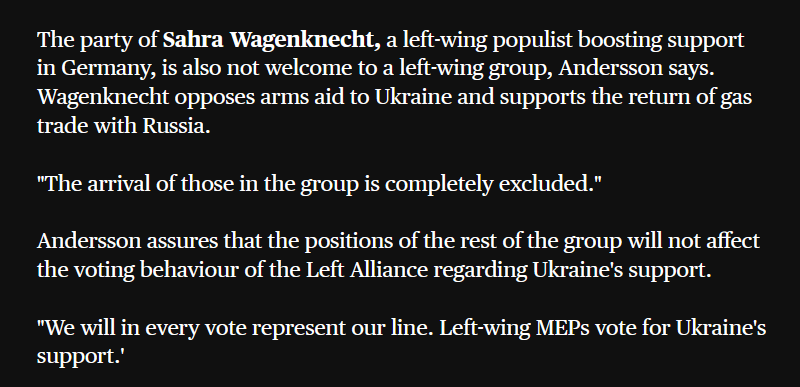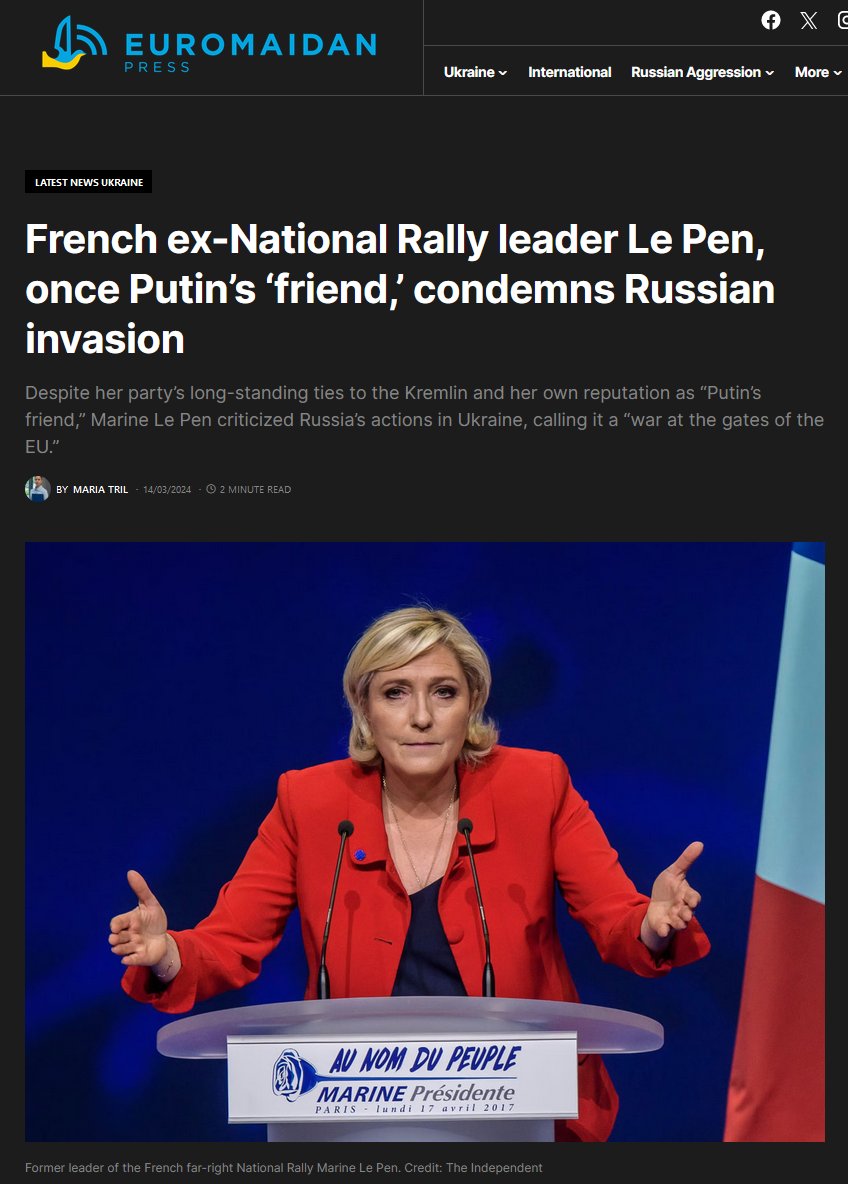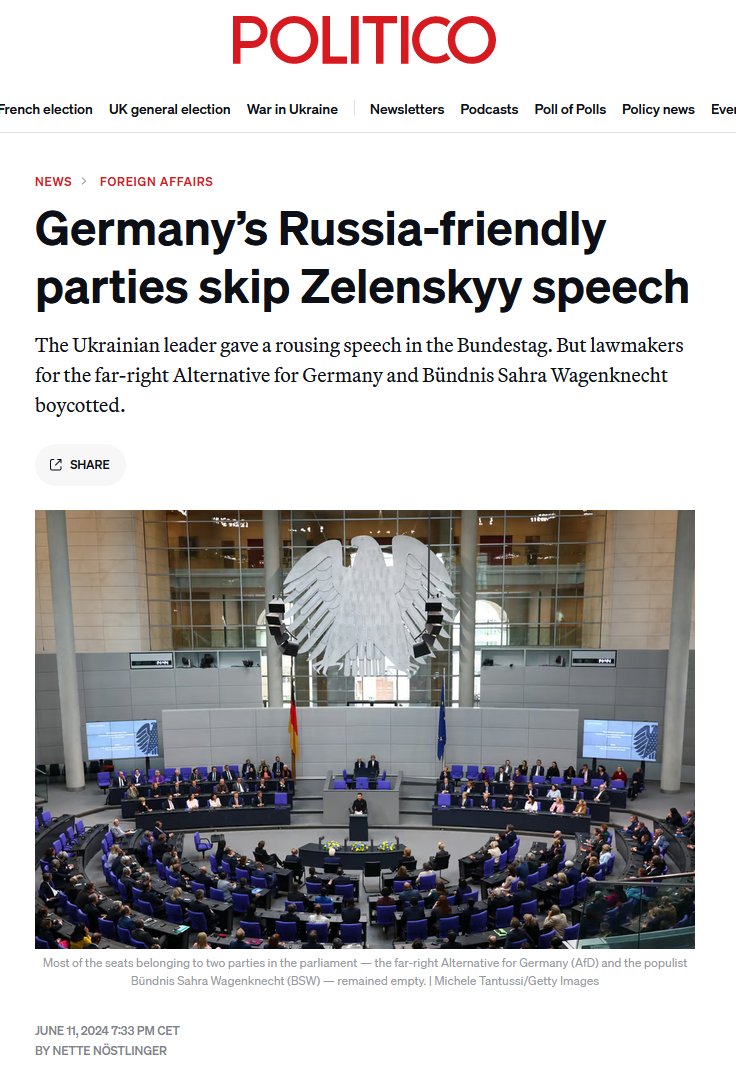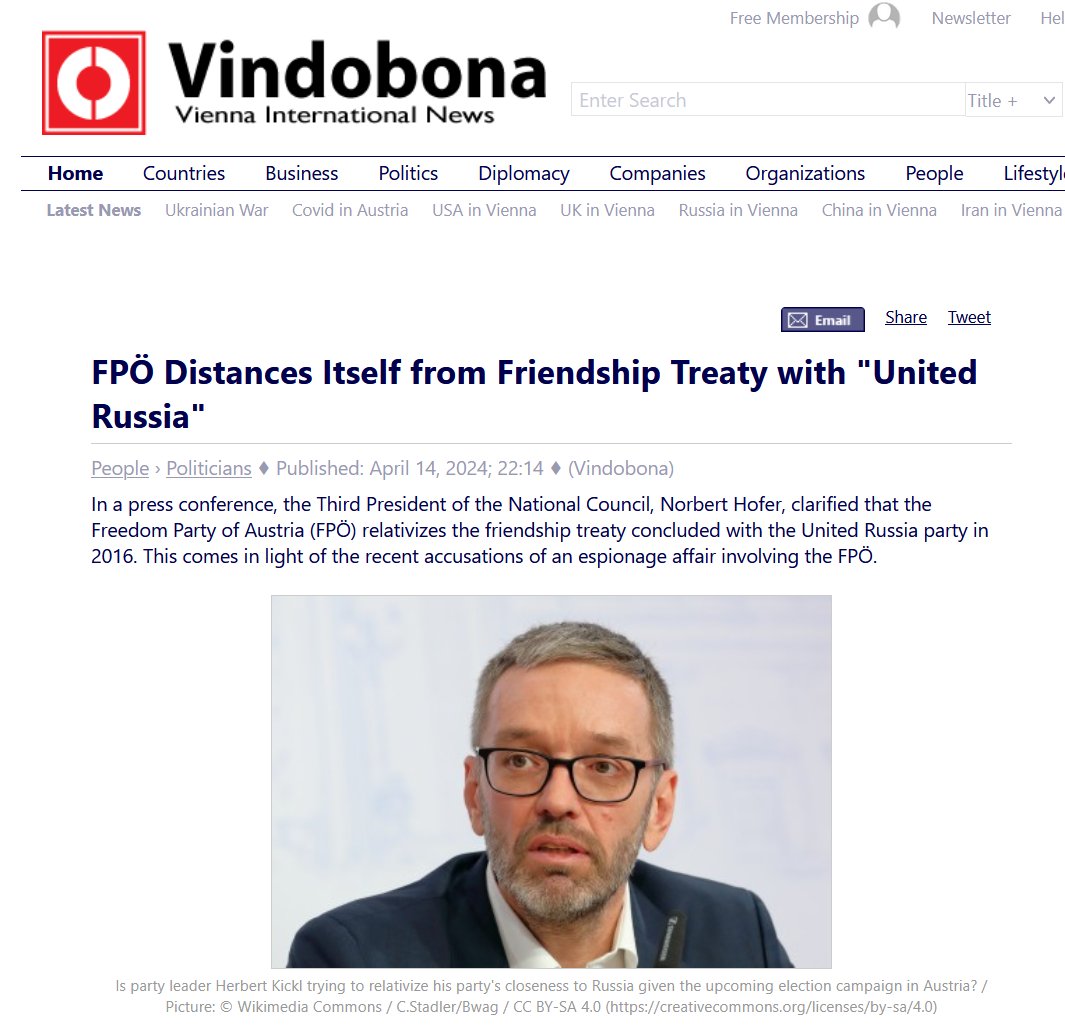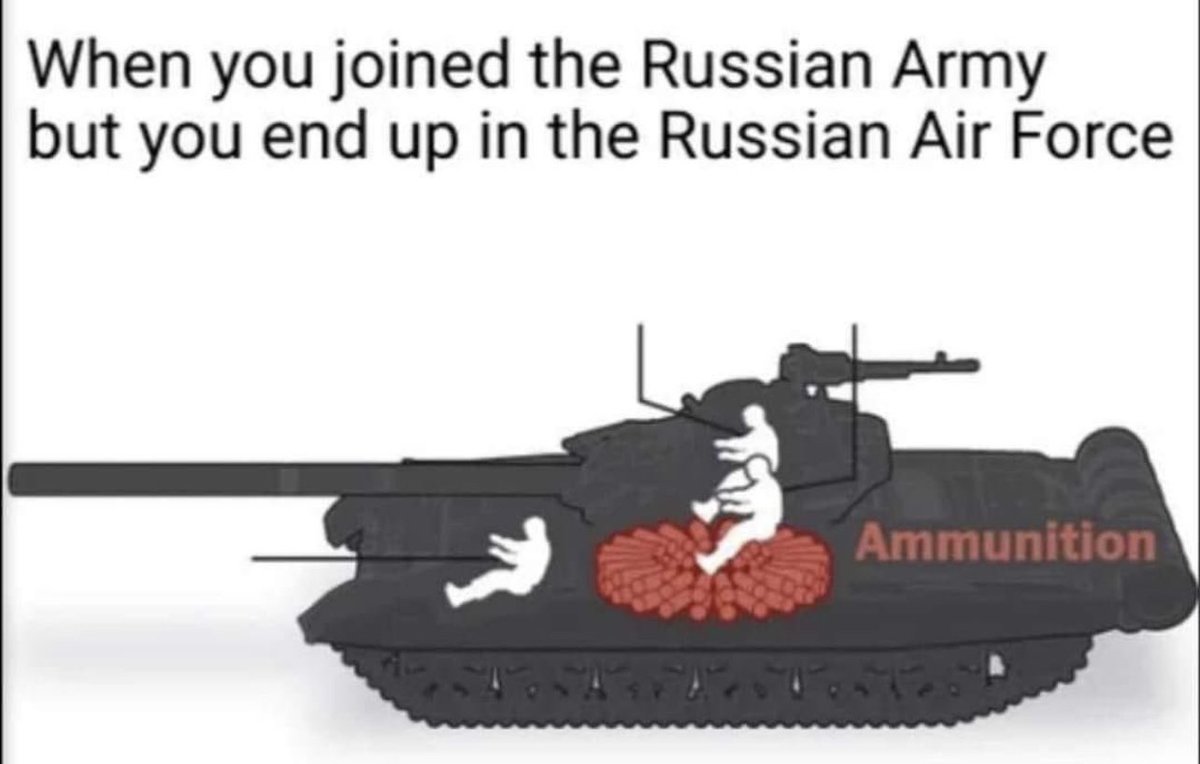Soup 295, June 14, 2024
| Soup | 295 |
|---|---|
| Permalink | Permalink |
| Date | 2024-06-14 |
| Twitter/X | Read |
| Twitter/X Quotes | View |
| Twitter/X Latest Comments | View |
| Twitter/X Thread | Thread |
| Thread Reader App | Read |
| Thread Reader PDF | Read |
| Audio App | Listen |
| Audio File | Listen |
| Soup type | Deep dive |
|---|---|
| Profession | Elections |
| Country of origin | European Union |
| Retweets | 576 |
| Likes | 2k |
| Views | 244k |
| Bookmarks | 164 |
| Related soups: |
EU elections 2024
But before we start, I want to promote a truck fundraiser I’m doing together with the fantastic @ArturRehi and @69thSB.
Our goal is 20,000 USD, and you can contribute to this important fundraiser here:
Our goal is 20,000 USD, and you can contribute to this important fundraiser here:
Let’s start with some good news: many well-known vatniks failed to go through, including Mick Wallace, Clare Daly, Tatjana Zdanoka & Marcel de Graaff. Thierry Mariani & Maximilian Krah continue their "work" in the European Parliament.
All souped at:
All souped at:
With groups like Sahra Wagenknecht’s party gaining momentum in Germany, the far-left gang will also constantly talk about peace negotiations, probably suggesting that Ukraine should agree to concessions to Russia:
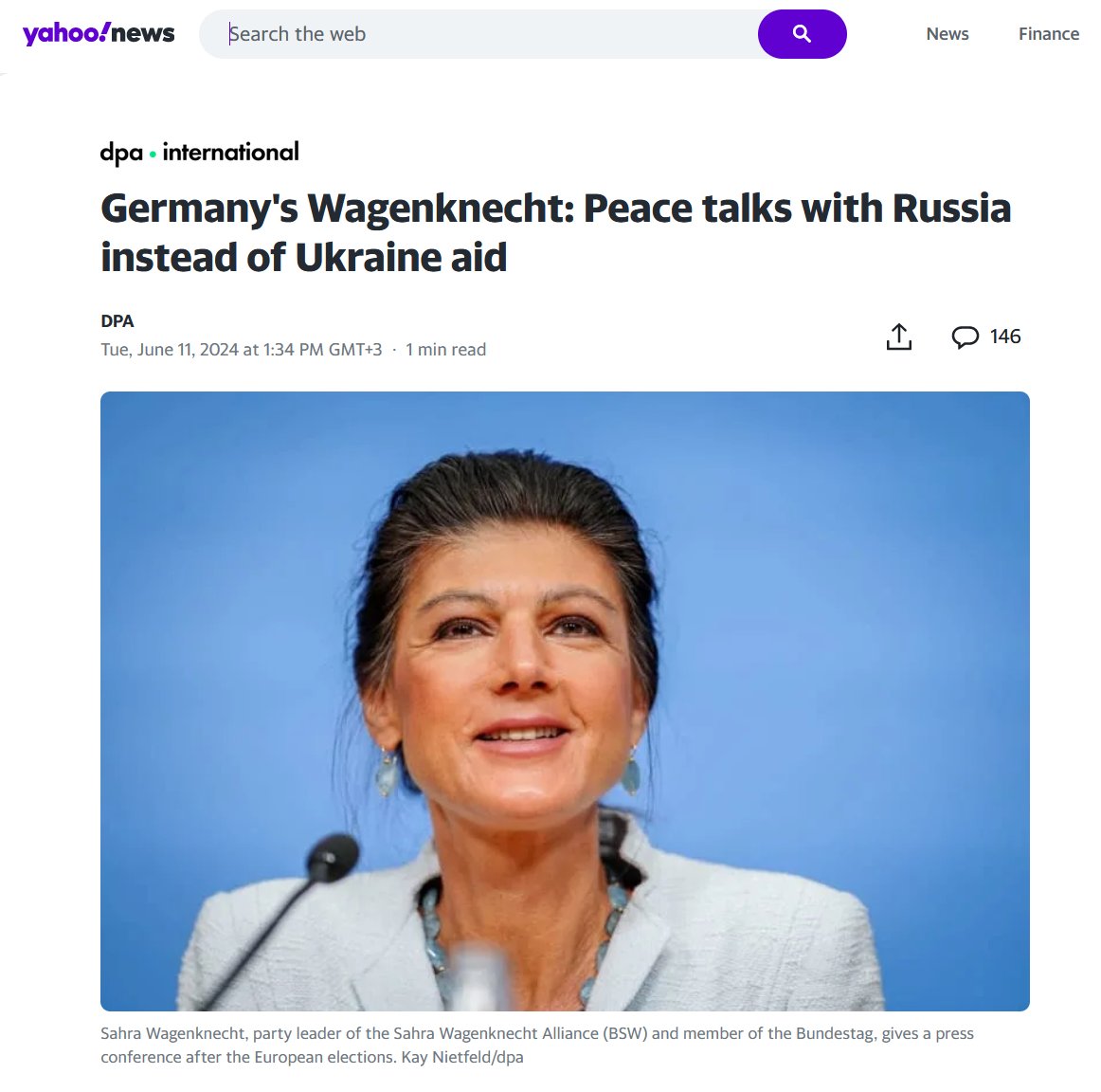
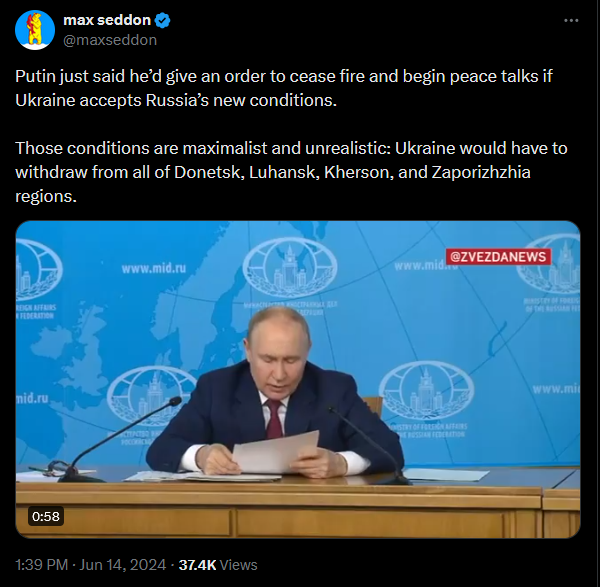
 Consequences of a Russian victory
Consequences of a Russian victory



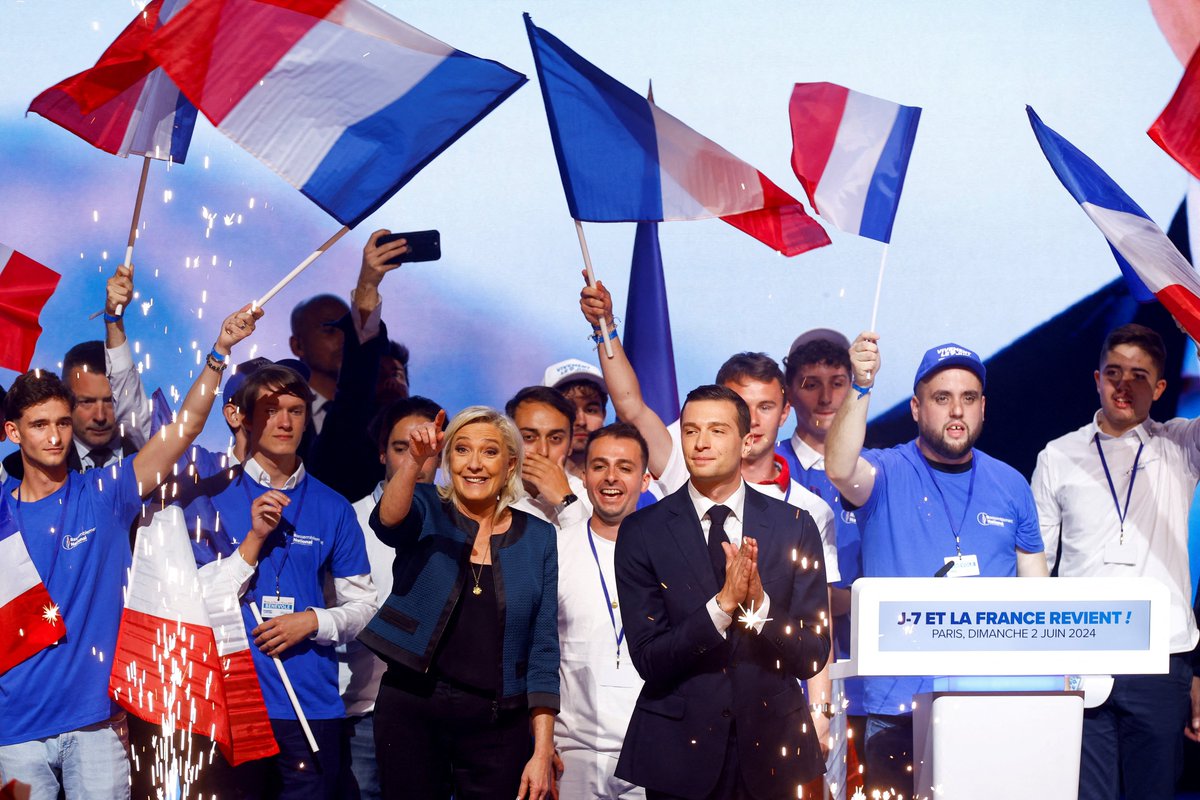
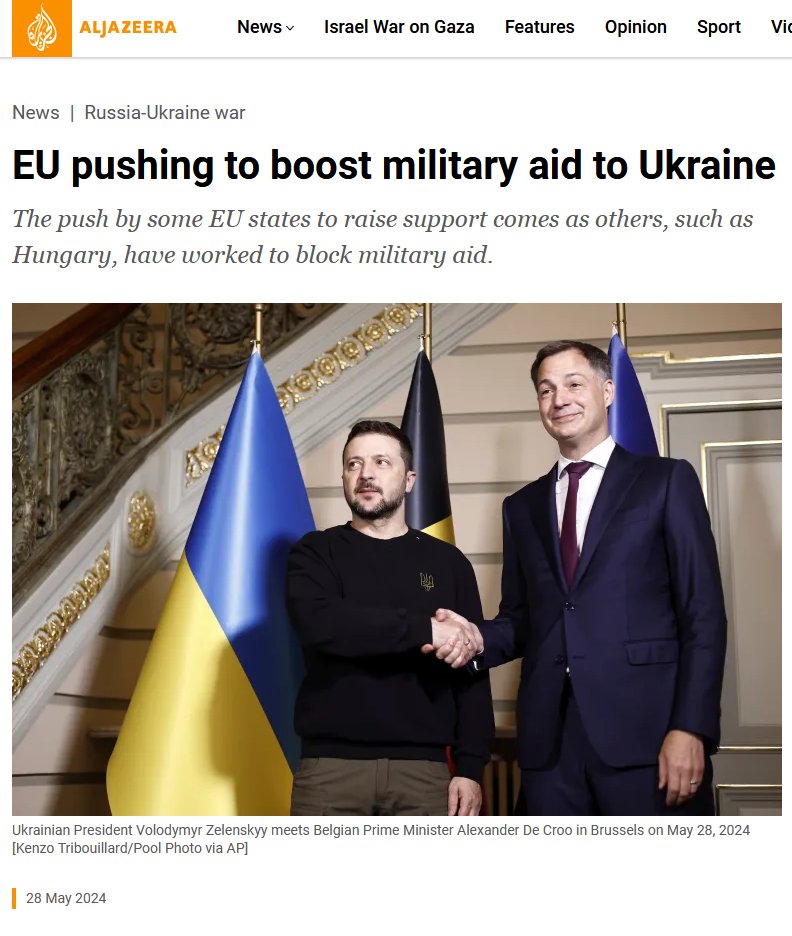
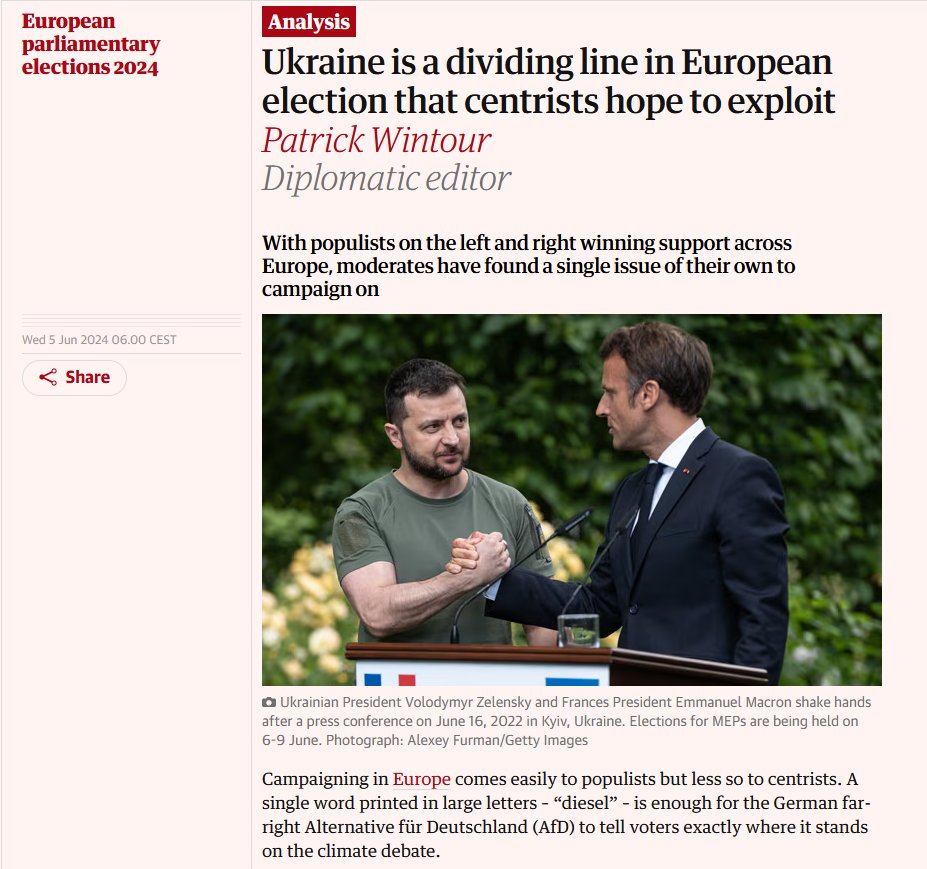
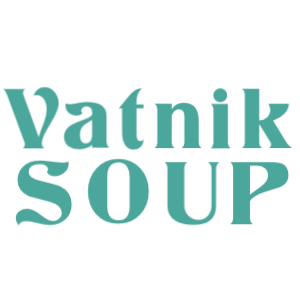
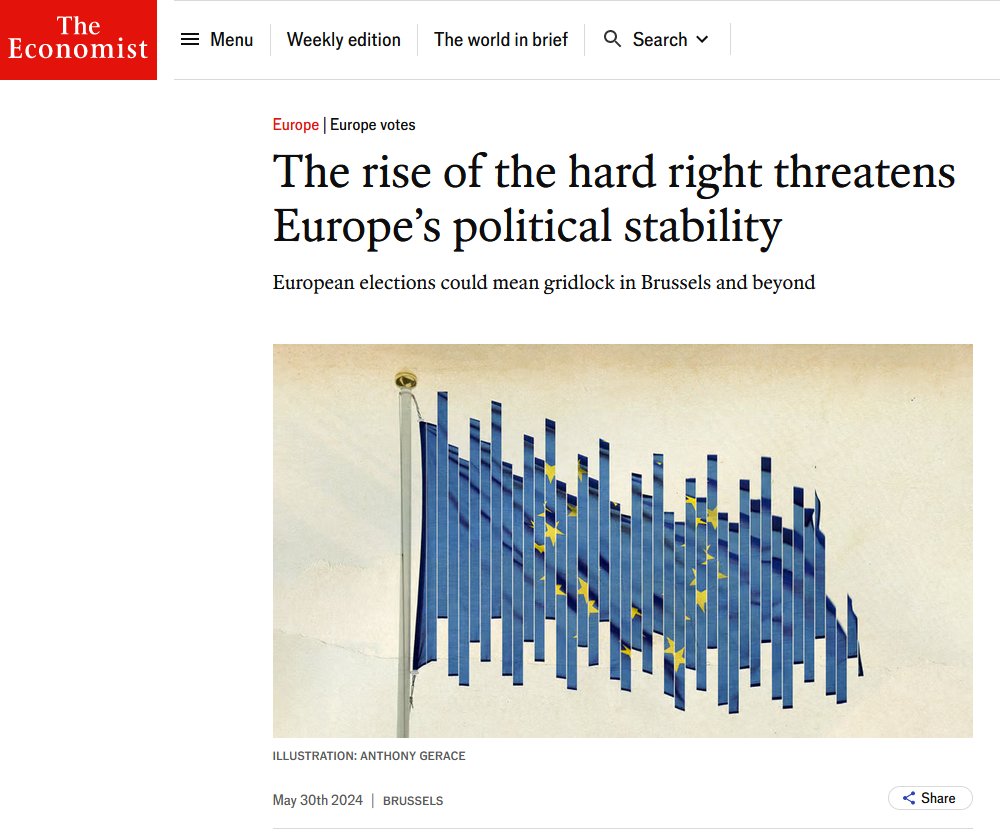
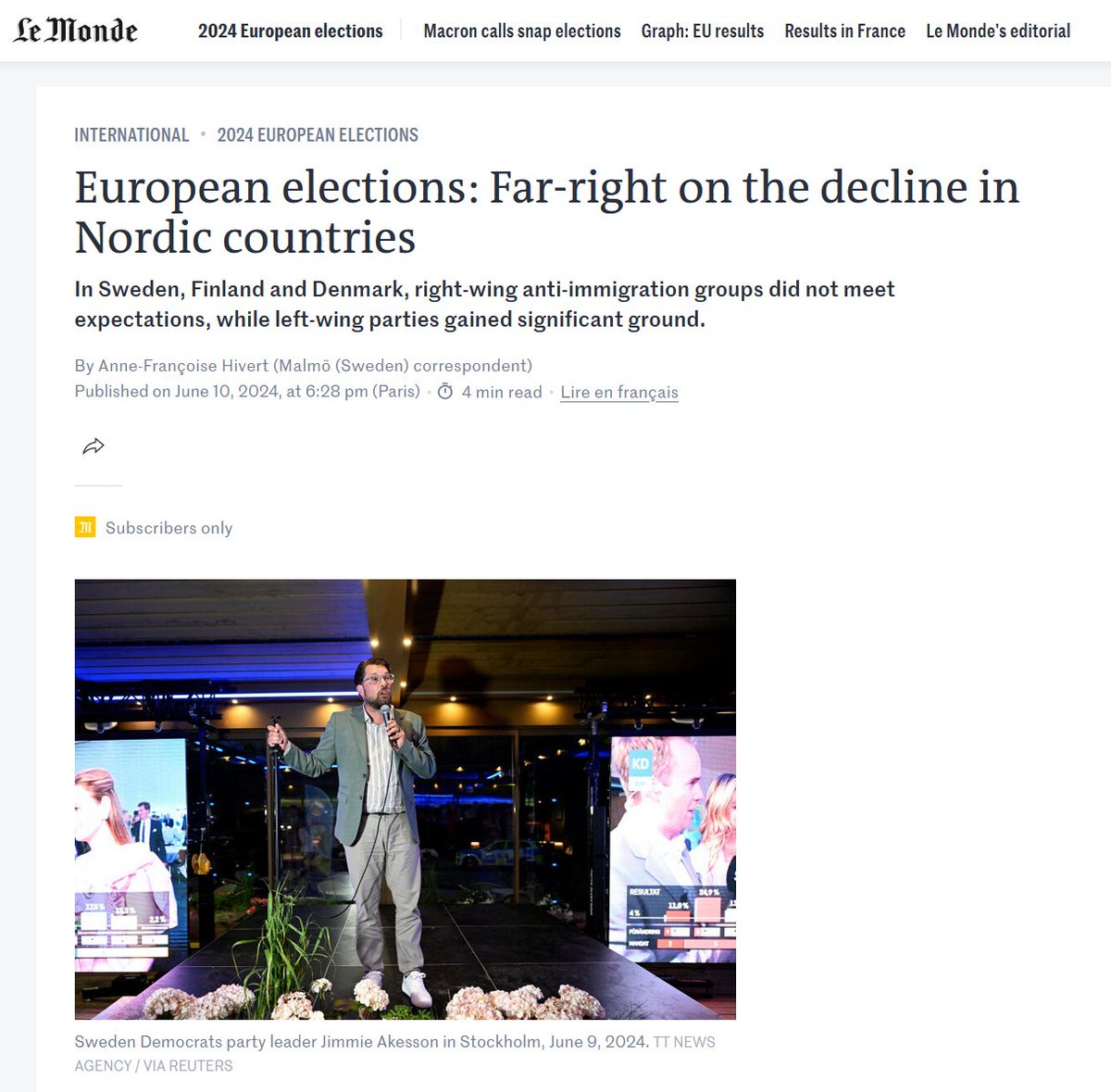

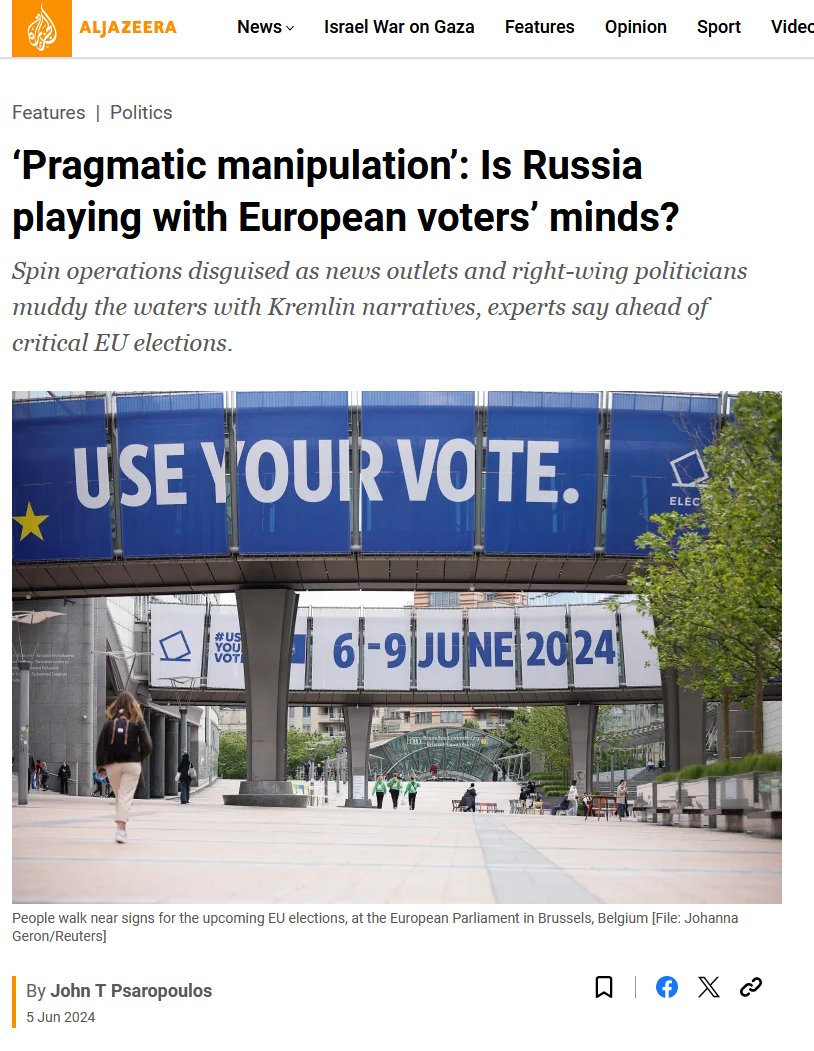
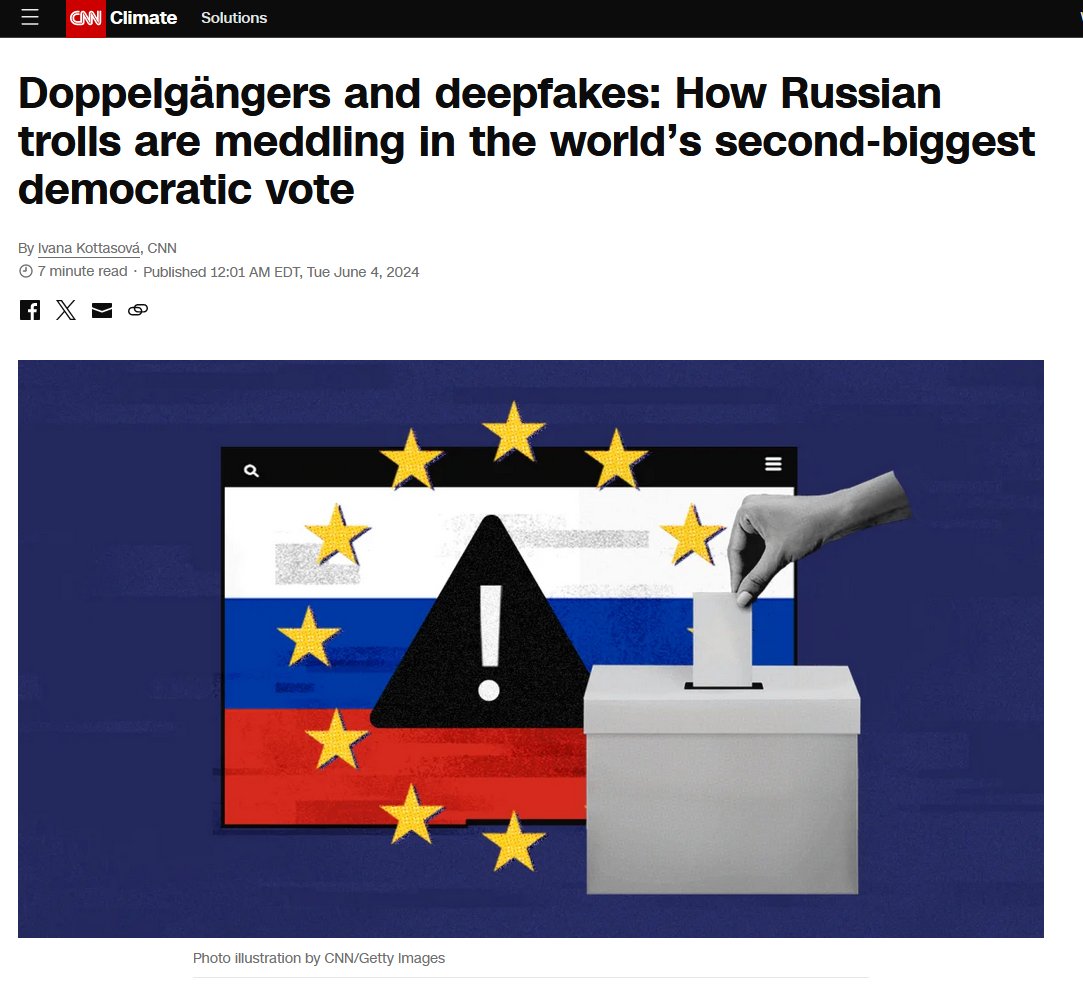
 Migration Bomb
Migration Bomb